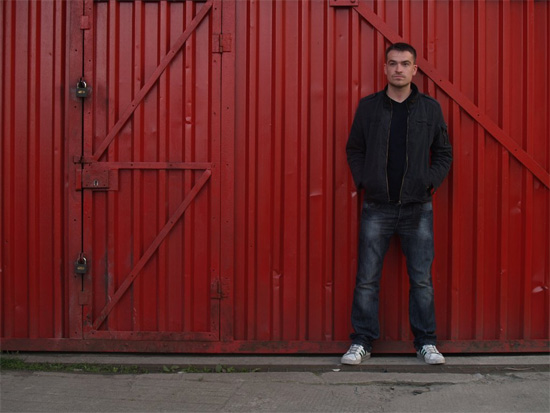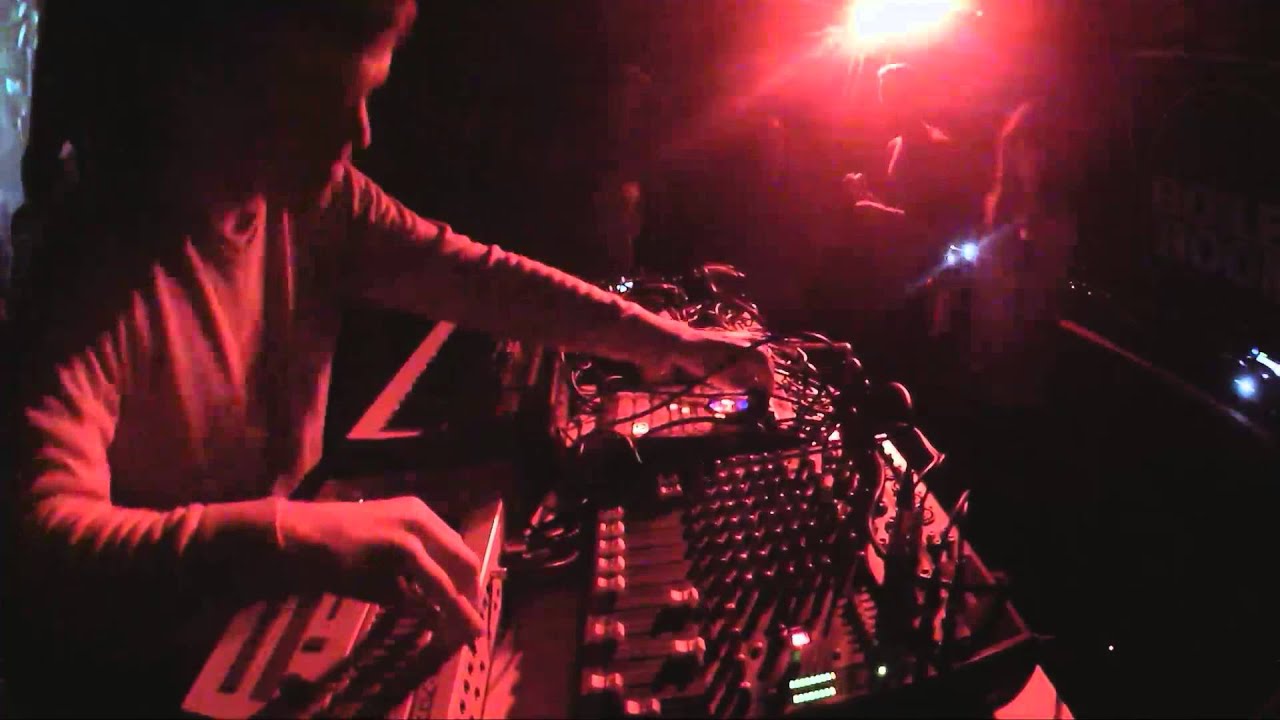Imagine a sleep deprived ride on the elevated Chicago ‘L’ railway on a cold and brilliant February morning, through unknown boroughs and wide boulevards, after a night’s fierce dancing; unhinged street prophets engage you in rambling conversation at intervals, perhaps a touch of Sun Ra in the cans. Finally you’re deposited by the shores of Lake Michigan, the majesty of the Great Lake playfully shimmering before tweaked synapses as you blink into stark sunlight. The music of John Heckle conjures up such imagery.
Because, like Legowelt or Jamal ‘Hieroglyphic Being’ Moss before him (of whom more later), Heckle has the ability to take classic Chicago house signifiers – simplicity, machine drive and raw sex – and blast them way outside the confines of the nightclub to the far reaches of space. Under his expert guide, tracks take on a questing air: his music speaks of the great wide world, its brutally elemental thump adorned with innocent beauty.
But while his tracks straddle the classicist and avant-garde with remarkably assured ease and maturity, the trajectory of his career thus far has been relatively swift. Graduating from Liverpool’s early 2000s techno scene, the teenage Heckle made his name around Merseyside through pumping three-deck techno sets. His live sets now are a sight to behold, often utilising a combination of records, TR-707 and other hardware. They’re live in the truest sense of the word, too: improvised, bracing, held together on a prayer and utterly incendiary. (For a taste, watch his recent live performance for the Boiler Room via the YouTube embed below.)
Playful, restless and cosmic, Heckle’s debut EP Life on Titan was released on Jamal ‘Hieroglyphic Being’ Moss’ legendary Mathematics label in 2010. Containing four bracing sci-fi infused shufflers, the record set the tone for his idiosyncratic sound world in fine form, while 2011 later saw the release of his debut album The Second Son, again on Mathematics. It was markedly more ambitious, encompassing everything from hard jacking acid tracks (‘Analog Bulldog’) through emotive slow builders (‘Inside Me’), time-warping cosmic disco (‘The Voyager (Voyeur)’) and even long periods of glimmering semi-ambience not too far removed from recent work by Actress (‘Counting Down To Infinity’).
At the end of last year he issued another salvo, consisting of the Voices & Visions EP and an excellent mini-album for Crème Organization entitled The Last Magic Maker. The latter’s title track in particular is a beautifully swarthy epic, all sepia toned synth washes and warped low end rumble. The Quietus caught up with Heckle on the phone from Manchester Airport, where he was en route to Singapore, to talk raw house, lost records and young raving.
‘The Last Magic Maker’ is seriously cinematic – a definite set ender. Could you tell us a little bit about hooking up with Crème Organization?
John Heckle: I hooked up with Crème through losing a big bag of records! I’d played in London at a night called Thunder and got on the train back, they weren’t there when I got up. It was a nightmare at the time because it was stuff I’d been collecting, some proper rare bits like an original pressing of Housefactors’ ‘Play It Loud’ and Lil Louis’ ‘How I Feel’, stuff like that. I posted up a list of tunes that had gone missing on Facebook and Discogs and there were a fair few Crème Organization records in there and they were kind enough to get in touch and send me the records to replace them, which was absolutely amazing. We stayed in touch and they asked if I’d like to do a record. I sent them 10 tracks, and they ended up picking up 7 for a mini album.
And how about Mathematics? Again, a label that makes perfect sense for your style…
JH: I’d gone over to Belgium to see Surgeon and Jamal Moss playing, which was my ideal line up. I was wearing my Mathematics t-shirt and went up to the booth – you know, "I’ve come over from England, I love your stuff", all that. When I got back, I sent him these four tracks on MySpace that I’d made that had been really heavily influenced by him. To be honest, they were tracks I’d written really trying to do my version of that sound, a kind of failed carbon copy [laughs], but he liked them and signed all of them which was incredible.
So was house always an important part of your musical DNA?
JH: No. At first it was techno all the way. My brother somehow snuck me into Bugged Out in Liverpool when I was 13. I remember watching Dave Clarke, and I fell in love with techno completely. I ended up asleep in the stairwell at 5:30am. It was the latest I’d ever stayed up in my life. He took me back there when I was 14 and I got a bollocking from the bouncers for dancing on the stage. For a long time with me it was just techno – I remember going record shopping and spotting a record by British Murder Boys and being like, yep, that one. [laughs]
What changed?
I heard this EP, A Tribute To Larry Heard [by Jamal Moss, under his Sun God alias]. It completely changed my perspective on house and techno, the whole relationship between the two. I’d never really heard anything as raw as that before, it was just really weighty, and pretty much introduced me to a whole other side of house music that I didn’t really know existed.
How did that progress into making music? You use 100% hardware, which is pretty unusual for a young producer. It’s normally messing about on cracked software that provides the introduction…
JH: [laughs] Well, my first experience of production was messing about with cracked software! I’d actually had a few tunes about before the Mathematics release, low-key DJ tools under the name Hec, but I was never really into production in terms of sitting and staring at a screen for hours on end.
My brother was running nights around Liverpool in the early 00s that were usually just residents with one guest – they’d get Surgeon or Regis up, and I’d warm up for them. The first 12" that I had signed was all because my brother passed it to Regis at one of his nights. My brother and I went halves on a Juno-G and I got a Novation Drum Station too, which was a direct result of seeing Jeff Mills when I was about 17 and watching what he did with the 909, which just blew me away completely.
With regard to the productions, I use no samples at all. Everything comes from the machines. The whole of the Life on Titan EP was made with the Juno – every sound on that record comes from that one synth. It’s normally a case of jamming things out until I’ve got a rough arrangement down, and then recording seven or eight takes.
Do you feel much affinity with producers today?
JH: In terms of listening, the opportunities to buy new records are few and far between. Its more of a retro thing to be honest – I really don’t listen to that many new records. I’ve got a big old Discogs want list and pretty much go through that. The opportunity to buy new records is few and far between. Again, it comes back to the rawness…



